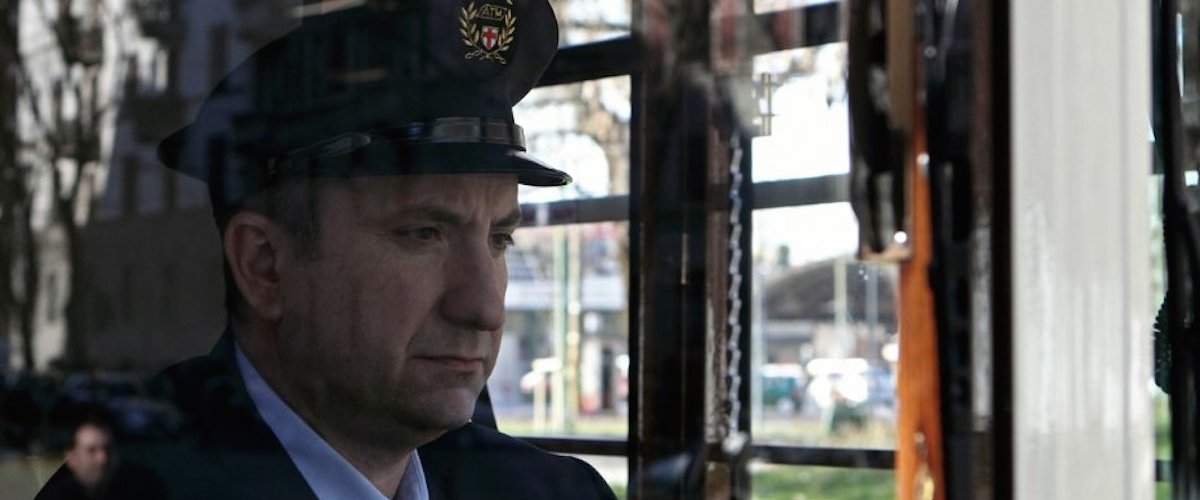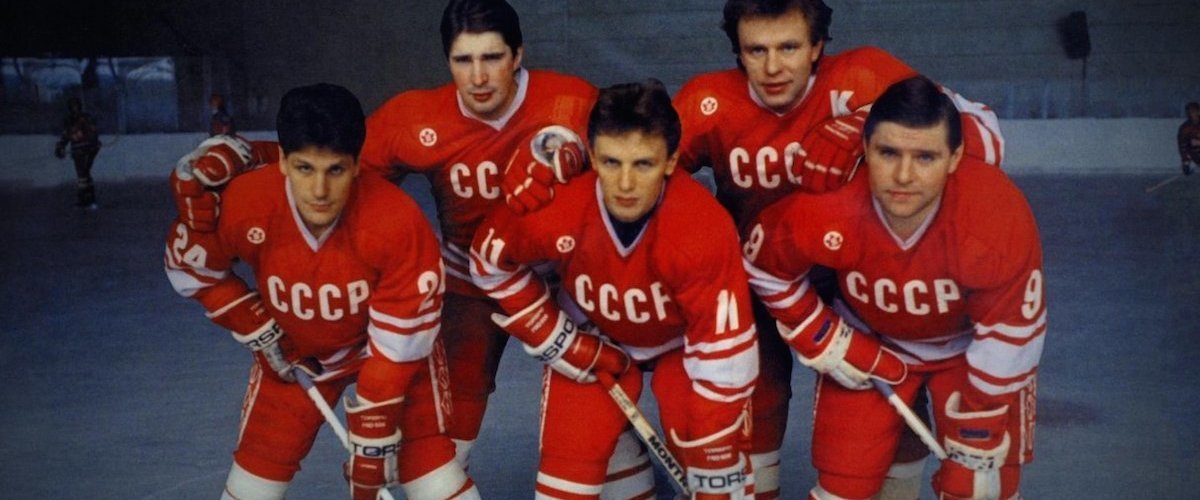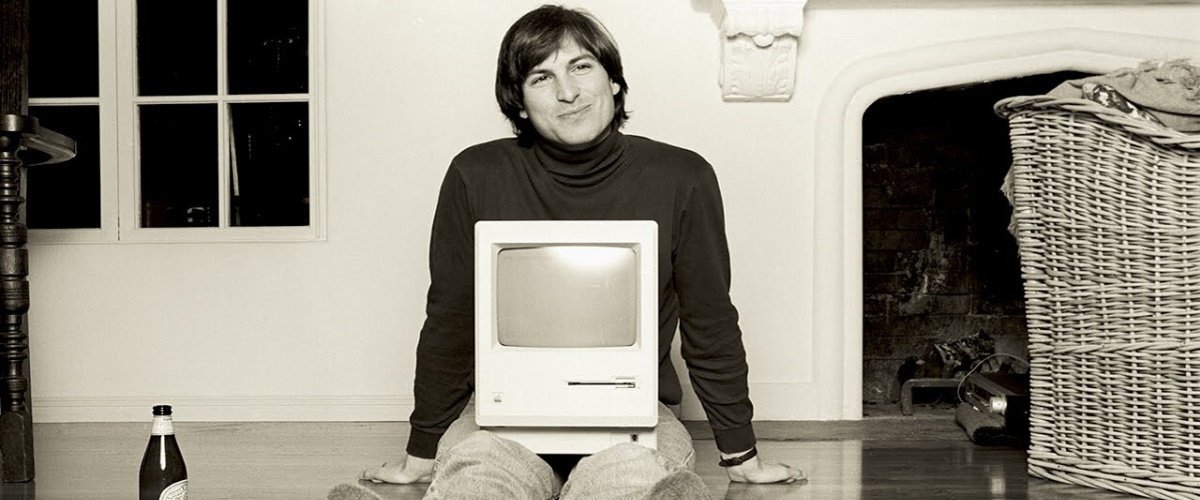This series features the movie questionnaires and reviews from 2015 published by our site’s regular film critics. We continue with critic Godfrey Cheshire, who has reviewed such films as “Güeros,” “La Sapienza,” “Red Army” and “Wild Tales.”
QUESTIONNAIRE:
Where did you grow up, and what was it like?
Raleigh, NC, in the suburbs like “Leave It to Beaver,” though on weekends I’d often escape to my mother’s family’s plantation, which was like “Gone With the Wind” and which, as I’ve said before, was for me a realm of imagination akin to what the movie theater later became.
Was anyone else in your family into movies? If so, what effect did they have on your moviegoing tastes?
No one else in my family was especially into movies, though when I visited Midway Plantation (see above) as a teen, one of the residents was the Raleigh newspaper’s film critic, a very entertaining guy named Bill Morrison; I don’t think he affected my tastes but I really enjoyed talking with him about movies.
What’s the first movie you remember seeing, and what impression did it make on you?
I don’t remember the earliest movies I saw, though as a kid my tastes ran to adventure films, war movies, westerns, Doris Day comedies, lots of Disney releases (a couple of execrable exceptions are noted below), sci-fi, jukebox musicals, Hammer and Roger Corman horror movies, and anything starring Elvis or John Wayne.

What’s the first movie that made you think, “Hey, some people made this. It didn’t just exist. There’s a human personality behind it.”
Easy: “The Man Who Shot Liberty Valance.” I was eleven. When I saw the title “Directed by John Ford” at the end, I knew this was the person responsible for what I loved about the movie: the elegiac tone, the humor, the bad-assness of Lee Marvin’s villain. I’ve often cited this as the decisive moment when I was set on the path to becoming a film critic. When Ford’s next film, “Cheyenne Autumn,” came to town, none of my friends wanted to go because it didn’t have a hit song or John Wayne and the downtown theater was being picketed by civil rights demonstrators, but I snuck through the picket line and saw it by myself.
What’s the first movie you ever walked out of?
I don’t recall but I’d like to think it was both/either “Old Yeller” and/or “Bambi” since I think the idiots at Disney responsible for these assaults on the sensitivities of kids must be considered sadists.
What’s the funniest film you’ve ever seen?
A tie: “Cat Ballou” and “Monty Python and the Holy Grail,” both films where I recall laughing till I almost couldn’t breathe.
What’s the saddest film you’ve ever seen?
“Shoah“
What’s the scariest film you’ve ever seen?
“Psycho”: I was in eighth grade and spilled an orange soda on my white jeans in guess which scene.
What’s the most romantic film you’ve ever seen?
What’s the first television show you ever saw that made you think television could be more than entertainment?
I did a lot thinking about this when I was a kid. Some of the shows that stimulated me most were “Combat!,” “The Twlight Zone,” “77 Sunset Strip,” and I recall one two-part episode of the B&W “Gunsmoke” guest-starring John Drew Barrymore that I thought was fantastic. My first published review, for my high-school paper, was of the wonderfully psychedelic Patrick MacGoohan show “The Prisoner.”
What book do you think about or revisit the most?
“The Enneads” by Plotinus
What album or recording artist have you listened to the most, and why?
The Beatles, by far. I was hitting puberty when they hit America, and they were the first band I ever saw play live. There was no looking back.
Is there a movie that you think is great, or powerful, or perfect, but that you never especially want to see again, and why?
Many of the movies I consider great are ones I’m not likely to return to, because there are now so many films going into release, and so little time: this is one of the film critic’s big dilemmas currently.

What movie have you seen more times than any other?
“Moving Midway,” which I wrote and directed. It’s amazing you can see your own movie innumerable times and not get tired of it. Next to that one, “Gimme Shelter,” starring the Rolling Stones and directed by David and Albert Mayles and Charlotte Zwerin; a great music doc, even a very disturbing one like this, can be played over and over like an album.
What was your first R-rated movie, and did you like it?
I don’t recall, but when I think “R-rated movie,” the film that flashes to mind is Nicolas Roeg’s “Don’t Look Now,” which had a famously steamy sex scene between Julie Christie and Donald Sutherland.
What’s the most visually beautiful film you’ve ever seen?
Who are your favorite leading men, past and present?
Jimmy Stewart, Cary Grant, Peter O’Toole, Clint Eastwood
Who are your favorite leading ladies, past and present?
Lillian Gish, Vivien Leigh, Julie Christie, Meryl Streep
Who’s your favorite modern filmmaker?
Who’s your least favorite modern filmmaker?
There are a handful but I’d rather not honor them with a mention.
What film do you love that most people seem to hate?
Can’t think of one.
What film do you hate that most people love?
The list is long but “Forrest Gump” would be near the top.
Tell me about a moviegoing experience you will never forget—not just because of the movie, but because of the circumstances in which you saw it.
I’m not including this because of where I’m writing. I’ve often said that the most memorable experience I’ve had in a movie theater was showing the Iranian film “Children of Heaven” to a theater full of school children at Ebertfest (then the Overlooked Film Festival) and then fielding their questions afterwards with Roger and Chaz. The kids were completely with the movie from the first to its exciting end, and their comments were wonderful. There was a lot of love in that room.
What aspect of modern theatrical moviegoing do you like least?
Video ads before the movies. And too many previews (another kind of ad).
What aspect of moviegoing during your childhood do you miss the most?
When I was a kid in Raleigh, there were two downtown theaters, the State and the Ambassador, that were old-style movie palaces of a bygone era, even though they had the latest equipment. I remember how grand and impressive they were, and cool in the summer. I saw “2001: A Space Odyssey” at the Ambassador in 70mm when it premiered; maybe the most dazzling movie experience I’ve ever had. It’s a shame that Raleigh let both theaters be destroyed; there’ll never be ones like them again.
Have you ever damaged a friendship, or thought twice about a relationship, because you disagreed about whether a movie was good or bad?
I disagree with friends all the time about movies. But the only time I can ever recall damaging a friendship was when the friend was a filmmaker who said he wanted me to be completely honest in my review, but didn’t really. That’s why I often steer away from reviewing friends’ movies.
What movies have you dreamed about?
I’d like to turn this question around and say that I used to dream frequently about Midway Plantation, where I spent a lot of time as a child, but when I made a film about the place, the dreams stopped. (For obvious reasons this reminds me of Hitchcock’s “Rebecca.”) But it’s been several years since the film was completed, and just recently the dreams have returned.
What concession stand item can you not live without?
None.
REVIEWS:

About Elly ****
“About Elly” represents all the tendencies of [Asghar] Farhadi’s mature style as brilliantly as “A Separation,” yet it is not a successor to the latter film. It was made just before it and won the Silver Bear at the Berlin Film Festival in 2009, but, due to complicated rights issues, was not released in the U.S. until now. Its belated appearance should be welcomed by cinephiles, as it offers solid proof of this writer-director’s distinctive gifts.

Best of Enemies ***1/2
A rich, extraordinarily fascinating account that’s sure to have many viewers’ minds constantly shuttling between then and now, noting how different certain things about politics and media were in that distant era, yet marveling at how directly those archaic realities led to many of our own.

The complex interrelated identities of Jewish and Palestinian Israelis—two peoples divided by a shared culture, to paraphrase Oscar Wilde’s reputed quip—is movingly explored in “A Borrowed Identity,” a sharply mounted drama about a young Arab who finds reasons to “pass” as Jewish.

Bravetown **1/2
A film for teenagers, especially those with a taste for teen-movie clichés put across with plush production values and a complement of high-energy dance numbers. Older audiences are likely to find the film less amusing than risible.

Of the many things that make “A Brilliant Young Mind” unsatisfying, arguably the most salient is that the assertion of its title defies dramatization. Nathan is brilliant? Well, if he were a footballer or a spelling-bee champ, we could see his skill as it evolved and played out. But since most filmgoers are not mathematics geniuses, the competition here must be reduced to furrowed brows, flurries of numbers flashed across the screen, and occasional swatches of unintelligible math-speech.

Cartel Land ***
It must be noted that “Cartel Land” weaves together two stories, and the Mexican one is far more compelling and revealing than the American. Like many verité documentaries, it also involves a trade-off. It explores its subject with a visceral immediacy that’s often thrilling, yet in eschewing interviews with experts and such, it can’t provide information that many viewers will want to know, which ends up feeling like a flaw.

Documentary films often find their value in taking us to places that are challenging, even painful. “Farewell to Hollywood” offers the rewarding difficulties of that type of filmmaking, along with additional challenges that stem from questions about its own ethics.

Futuro Beach ***1/2
“Futuro Beach” is a film about displacement and identity, love and its costs. Its considerable satisfactions, though, come mainly from the way the story is told, which spells nothing out, and in fact is so reticent that the viewer is constantly drawn into the creation of meaning.

Güeros ****
Right off the bat, Alonso Ruizpalacios’ “Güeros” captures three superlatives from this reviewer: Best debut feature I’ve seen in the last year, best Mexican film in recent memory, and best (black and white) cinematography since Pawel Pawlikowski’s equally stunning but very different “Ida.”

The film is the latest in a long line of movies that seem to assume the milieu of addiction is justification enough for its existence. The result is a work that—like a whole sub-species of French films of the recent decades—fetishizes its own hyper-naturalistic visual style and performances (all but one by non-actors) while offering no original or striking insights into the world it portrays.

An Honest Liar ***1/2
If its account of Randi’s work as an exceptional entertainer and a zealous debunker were all that “An Honest Liar” gave us, it would be a tremendously fascinating film. But the movie also contains a third-act surprise – which won’t be revealed here – that makes it both unexpectedly revelatory and deeply moving.

The Human Experiment **1/2
Its subject, the threat of manufactured chemicals in the environment, is a sprawling, amorphous one. And though Sean Penn executive-produced the film and voices its spare narration, the doc has a very generic tone, so much so that it might seem to belong on TV rather than in theaters.

What comes across as genuine in the film, and might also help explain its origins, is its air of melancholy and loneliness. The film’s Milan is not just a vision of wintry industrial anomie; it also feels like a place where people inhabit the same space but never touch each other. A space that’s more the inside of one man’s head than an actual city, in other words.

Iris ***
Few documentaries match subject and filmmaker as perfectly as “Iris.” Fashion icon Iris Apfel and documentarian Albert Maysles were well on in life when he set out to make a verité portrait of her: she in her early 90s, he in his late 80s. Both were quintessential New York characters with their own senses of style.

Lambert & Stamp ***
A sharply crafted, highly entertaining portrait of two young Londoners who made their names and fortunes by managing a fledgling band called the High Numbers, who became The Who.

La Sapienza ****
“La Sapienza” strikes this reviewer as easily the most astonishing and important movie to emerge from France in quite some time. While its style deserves to be called stunningly original and rapturously beautiful, the film is boldest in its artistic and philosophical implications, which pointedly go against many dominant trends of the last half-century.

Mad as Hell ***
Andrew Napier’s “Mad as Hell” does indeed play like a real-life update of Sidney Lumet and Paddy Chayevsky’s skewering of TV news. Except that here the main personality is notably calmer, if no less passionate, and his personal story also touches on a larger and very significant one: the battle between old and new media and how it relates to journalists’ ability to “speak truth to power” in an age of all-pervasive corporate control.

A Murder in the Park ***1/2
Besides being a riveting true-crime story, Shawn Rech and Brandon Kimber’s “A Murder in the Park” is a film that makes a powerful case that some cherished liberal beliefs aren’t always congruent with the truth; in fact, sometimes they are the exact opposite.

As he does throughout, [Edward] Zwick treats Fischer’s late-60s trip to California with all manner of cinematic clichés: We see oodles of grainy footage of surfers and their chicks on the beach and other flashes of the sun ‘n’ fun lifestyle, not that this has anything to do with the chess competition that takes place entirely indoors.

Queen and Country ***1/2
For cinephiles who’ve followed [John Boorman’s] long and sometimes eccentric career with interest and admiration, “Queen and Country” will be a sure winner. A sequel to the similarly autobiographical “Hope and Glory,” […] the new work is obviously personal yet also entertaining, accessible and beautifully crafted.

Red Army ****
Emotionally charged, viscerally exciting and consistently enlightening, Gabe Polsky’s “Red Army” is a sports documentary like no other. […] That it covers such a momentous sweep of history gives “Red Army” the allure of an epic, though it’s one told in very intimate terms.

The Seven Five ***1/2
Both wrenching and enlightening, “The Seven Five” avoids sensationalism to provide a nuanced, thoughtful account of material that’s at once sordid and instructive. I came out of it hoping (futilely, no doubt) that Hollywood producers aren’t already lunging to turn it into a big, splashy crime epic. We’ve already seen that movie, too many times. The real thing is far more sobering and useful.

Slow West *1/2
“Slow West” must be counted one of the most unintentionally ridiculous Westerns to come down the pike in a long, long while. From first till last, this tale of a hard-boiled bounty hunter helping a Scottish lad on his quest to find the woman he loves, who’s on the lam in the old West, is a tissue of creaky contrivances and outright absurdities.

Steve Jobs: The Man in the Machine ***
In contrast to most of [Alex] Gibney’s documentaries, which are told in a standard third-person style, usually without narration, this one has a more personal tone from the outset, as a way of recognizing and probing the reality that, more than any other figure, Jobs put the “personal” in personal computer and the many, increasingly intimate devices descended from it.

Still Life **
The film’s title says lots about its mood and style, which is heavy on becalmed views of rooms, objects like an apple peel and office utensils, and May’s glazed gazes at nothing in particular. […] In terms of atmosphere, it conveys a kind of drab ordinariness that, for some reason, in English films, comes across as exceptionally dull, constricted and depressing.

Stonewall *1/2
Its melodramatic plot and stereotypical characters presumably were employed with the hope of drawing a mainstream audience, which, nonetheless, is likely to find both either off-putting or risible. In so doing, the film misses the chance to offer an original artistic or sociopolitical take on the 1969 riots that sparked the U.S. gay rights movement.

Testament of Youth ***1/2
While all of the actors’ work deserves commendation, special praise must be given to Alicia Vikander, a Swedish actress who does an amazing job conveying one young Englishwoman’s strength, resilience, intelligence and vulnerability. […] Vikanker’s performance clearly suggests the inner resources and tremendous determination that allowed her not only to pull through, but also to write an enduring testament to those who suffered and died.

3 Hearts **
With these performers working together, it’s a shame that [Benoît] Jacquot can’t give them more to do that justifies our attention. But “Three Hearts”—the title could belong to a D.W. Griffith melodrama—is one of those films that raises our romantic expectations only to disappoint them, with a story that ends up collapsing under the weight of its absurdities.

Wild Horses **1/2
Robert Duvall delivers a complex, ambitious genre piece that combines family drama and murder mystery, set in the south Texas ranch country. While the mix doesn’t always cohere, the film boasts moments and scenes that rank with Duvall’s best work.

Wild Tales ****
An extraordinary surprise. Perhaps the best multi-story feature this reviewer has ever seen, the Sony Classics release, a nominee for this year’s Best Foreign-Language Film Oscar, deserves to become a serious art-house hit in the U.S. thanks to its skill in deftly overcoming the form’s usual deficits, for a result that feels as amazingly cohesive as it is relentlessly clever and entertaining.












